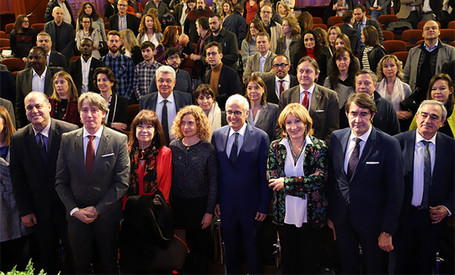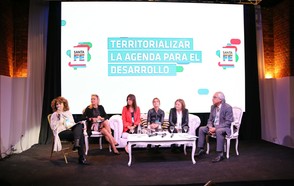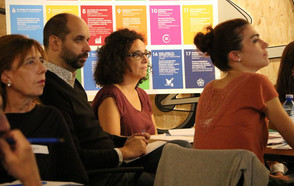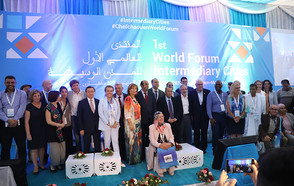
Think Europe-Commitment 2030: the Mayor of Soria, Carlos Martínez, aims to make the challenge of Europe understandable to citizens.
Think Europe-Commitment 2030 kicked off this Wednesday in the city of Soria with a call to rescue “social cohesion”, which the current system has put at risk. This was made by the Minister for Territorial Policy and Public Function, Meritxell Batet, who opened the meeting, together with the Mayor of Soria and member of the FEMP Governing Board, Carlos Martínez, and authorities from Morocco, this year’s guest country.
The Minister affirmed the need to safeguard and rescue the social cohesion that has characterized the social pact on which Spain is founded. To achieve this, we must fight for “full equality” she said; an effort in which intermediary cities are a “cornerstone”. Batet added that the 2030 Agenda is a great tool to increase effectiveness in ensuring the vital development of all citizens.
Along with Batet, the Mayor of the host city, Carlos Martínez, welcomed participants to Think Europe, referring to the Europe of today. The Mayor, also a member of the FEMP Governing Board, reflected on the direction to be taken by a Europe that “does not understand the citizens, and that the citizens do not understand either”. For this reason, Martínez launched the challenge of making the global understandable, and of demonstrating that “what happens in Soria or in Syria affects us, because we are a global society”.
Morocco, as the guest country of this year’s meeting, was present at the opening ceremony through the Minister of National Planning, Urban Planning, Housing and Urban Policy, Abdelouahed Fassi-Fihri, and the Mayor of the Moroccan city of Chefchaouen and President of the UCLG Forum of Intermediary Cities, Mohamed Sefiani. Both coincided in pointing out the need to work in coordination, because “the challenges are common, as are the solutions”. In this vein, the Regional Minister of Development and Environment of the Government of Castile and Leon, Juan Carlos Suárez-Quiñones, emphasized the need for this coordination to achieve the 2030 commitment.
Before the opening ceremony, a keynote speech by Josette Altmann, Secretary General of FLACSO, took place. She took advantage of the occasion to explain that “sustainable development is development for all and forever”. In this sense, she highlighted that intermediary cities – as Minister Mertixell Batet would later emphasize – are a space of refuge and of real solutions to global problems.
On this first day, issues such as the need for coordination among institutions to make the 2030 Agenda a reality, generating global governance to reach solutions to local challenges and the role of international cooperation were also addressed. The leaders of the Municipalities of Madrid, Nigrán, Terrassa and Granollers, among others, participated in the panel discussions.
Bilateral Spain-Morocco Summit
Within the framework of this first day, Minister Meritxell Batet, together with the Secretary General of FEMP, Carlos Daniel Casares, the Mayor of Soria, Carlos Martínez, and the Delegate of the Government in Castile and Leon, Virginia Barcones, met with the Moroccan Minister and his delegation to put into practice this collaboration that allows true sustainable development to be generated.
In this regard, the Secretary General of FEMP stressed that during the meeting the possibility of working with the Federation of Municipalities of Morocco was assessed, in order to generate exchanges of experiences and other possible collaborations. In this sense, Minister Batet highlighted the need to put into practice close cooperation between Morocco and Spain, the gateways to Africa and Europe.
Source: FEMP













